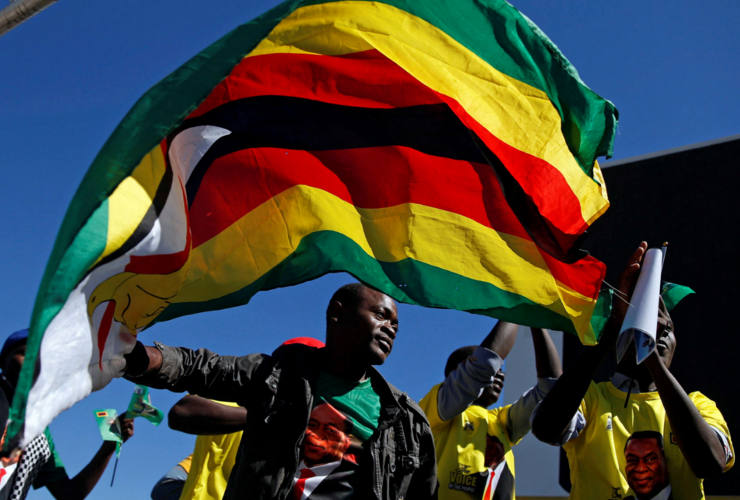Zimbabwe is preparing for its first general election after Robert Mugabe’s 37-year regime ended last year. As the poll date of July 30 nears, the safety of journalists is fast crumbling in the country.
Last week, the country’s journalists sounded the alarm, after Zimbabwe Defence Forces’ (ZDF) director of public relations, Colonel Overson Mugwisi, attacked journalists at a press conference. Mugwisi reportedly singled out four journalists and accused them of “bad and mischievous reporting”.
Mugwisi’s verbal aggression on journalists came after a series of other incidents. In May, a journalist was verbally abused by Deputy Minister of Finance Terrence Mukupe in a live radio broadcast. Afterwards, Mukupe charged the journalist with assaulting him.
Over the past few months, journalists have also been physically attacked by supporters of both the ruling party Zanu PF and the opposition alliance Movement for Democratic Change (MDC Allience), with the most recent assault occurring on July 15. In April, a journalist was arrested and briefly detained while covering Zanu PF primary elections.
Putting pressure on media has a serious effect on the way the journalists operate, Tabani Moyo, Zimbabwe director at the Media Institute of Southern Africa (MISA), said in a recent interview with the International Press Institute (IPI). Threats coming from the military are especially worrying.
“Knowing how the military has treated people who expressed things they did not want to be expressed, it has a chilling effect”, Moyo told IPI.
Zimbabweans haven’t forgotten the events in 1999 when two journalists were detained and tortured by the military for days after the journalists exposed the military’s plan for a coup d’état.
Since the military ousted Robert Mugabe in a bloodless coup in November 2017, former military officers have assumed key positions in the government. Many of them had worked in the Mugabe cabinet, notorious for its hostility toward freedom of expression. As a result, the media environment under President Emmerson Mnangagwa has improved little, contrary to hopes.
Oppressive media laws remain in place
In addition to imminent threats to individual journalists, election coverage in Zimbabwe suffers from the country’s oppressive media legislation. MISA had hoped that the new government would reform the relevant laws before the general election, Moyo said, but no progress has been made.
The current legislation, including the Access to Information and Protection of Privacy Act (AIPPA), the Criminal Law (Codification and Reform) Act and the Broadcasting Services Act, is inconsistent with the Zimbabwean Constitution, which guarantees freedom of expression and the access to information. According to a report published by the African Union Election Observation Mission (AUEOM) after the 2013 election, these laws also interfere with free and fair election coverage.
Zimbabwe’s elections commission requires, for example, separate accreditation for journalists who want to cover the elections. Moyo noted that double accreditation can be too costly for freelance journalists, whose number has been increasing in Zimbabwe.
Independent radio stations have also faced difficulties obtaining operating licenses, which are awarded by the government. Radio stations run by state-owned enterprises or with political connections to the ruling party are seen as receiving preferential treatment.
Zimbabwe’s media landscape is polarized. The public broadcaster and the state-owned media tend to mainly cover Zanu PF, whereas the opposition media gives more positive coverage to opposition parties. This polarization is palpable in the coverage of the upcoming elections, according to the first independent fact-checking platform in the country, Zimfact.
MISA has called for impartiality, especially from the public broadcaster.
“The election is for the public and the public needs to have the information flowing freely”, Moyo said.
Sticking to the facts
Compared to previous elections, the 2018 election campaign has so far been peaceful but the pressure on media is likely to increase as the polls draw closer.
Recently, MISA launched a mobile application called JournoSOS where journalists can report violations of press freedom. The institute also offers journalists legal assistance.
Trying to ensure the safety of journalists ahead of the election, MISA advises journalists to follow ethical rules and to make sure that their facts are on solid ground – though it notes that, in the current climate, professionalism alone may not offer enough of a shield.
